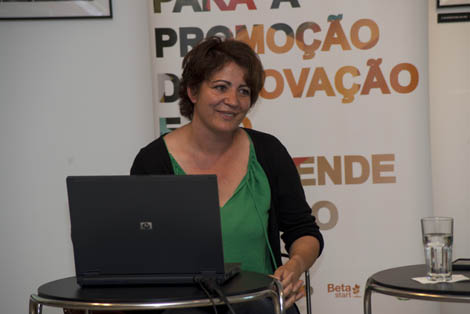 Fátima Torres was an accountant, but she wasn't happy. Therefore, seven years ago, he changed his life radically and decided to return to Lagos and take up his family's farm, in the Sargaçal area, to create his Quinta das Seis Marias, a six-hectare farm dedicated to organic and organic farming. stands out for its innovation.
Fátima Torres was an accountant, but she wasn't happy. Therefore, seven years ago, he changed his life radically and decided to return to Lagos and take up his family's farm, in the Sargaçal area, to create his Quinta das Seis Marias, a six-hectare farm dedicated to organic and organic farming. stands out for its innovation.
«I worked in Madeira, in a company offshore, as an accountant, but I was fed up and wanted to change. I had that feeling of looking at the clock and the time never went by, sometimes I didn't even want to go to work», he recalls. But when she decided to change her life radically, it wasn't easy: “nobody supported me when I said I wanted to do organic farming: neither my mother nor my ex-husband (that's why he became an ex). But I'm stubborn and invested in it». An investment that Fátima Torres, despite her hard work, does not regret and about which she speaks with her eyes shining.
This young farmer was invited to the latest Beta Talk, in Portimão, in a session that crossed the destinies and experiences of two entrepreneurs from the Algarve, one connected to the land, Fátima Torres, the other to the sea, Pedro Bastos, managing partner and commercial director of Nutrifresco – Comércio e Indústria de Pescados.
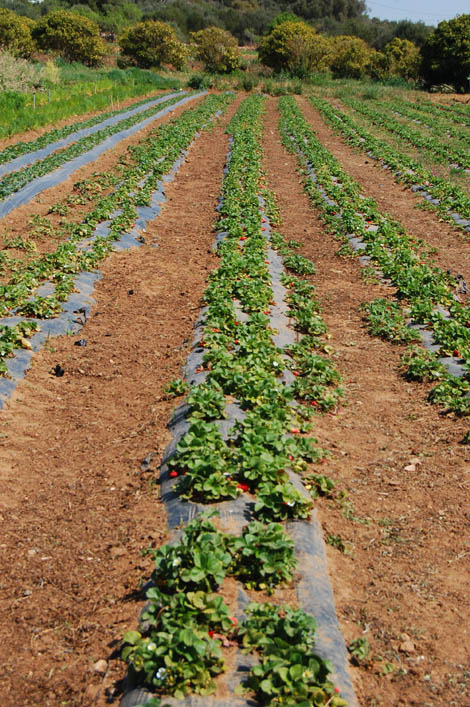 Na Quinta das Seis Marias (named after her mother and five daughters, Fátima and her sisters), the agricultural entrepreneur cultivates and produces more than 80 varieties of vegetables, herbs and fruits, which she sells in markets in the Algarve, Lisbon and Porto, schools, shops of biological products, restaurants, grocery stores and small supermarkets. For about two years, it has had a store on the farm, where consumers can go directly to stock up on seasonal products.
Na Quinta das Seis Marias (named after her mother and five daughters, Fátima and her sisters), the agricultural entrepreneur cultivates and produces more than 80 varieties of vegetables, herbs and fruits, which she sells in markets in the Algarve, Lisbon and Porto, schools, shops of biological products, restaurants, grocery stores and small supermarkets. For about two years, it has had a store on the farm, where consumers can go directly to stock up on seasonal products.
At the shop, each customer can choose the vegetables or fruits they want, but they can also choose to buy an organic basket, one of Quinta das Seis Marias' successful products, which they also distribute through the PROVE project. Fátima explains that «the baskets always have seasonal fruits, vegetables and assorted salads». And with the advantage that, if people want, they can “harvest their products”. The prices of the baskets vary between 7,5 euros (5,5 kg) and 15 euros (10 kg).
The crisis, he guarantees, did not affect his business: «we were born with the crisis, so we had to adapt right away. Despite the crisis, last year I doubled sales and this year I already tripled. I'm already selling to Lisbon and Porto, in addition to the Algarve». And the success has been so much, that Fátima has even teamed up with other Algarve biological farmers “to take their products to Lisbon”. «Every week a van goes to Lisbon and now another loaded car. This is a good sign», he guarantees.
There is only one problem: the driver on these trips to Lisbon and the Algarve is Fátima herself, who thus, she confesses, is “further away from what I really like to do, which is to get my hands on the ground”. "I don't like doing these careers at all and I really have to get a commercial to deal with it."
Agritourism and transformation of surpluses
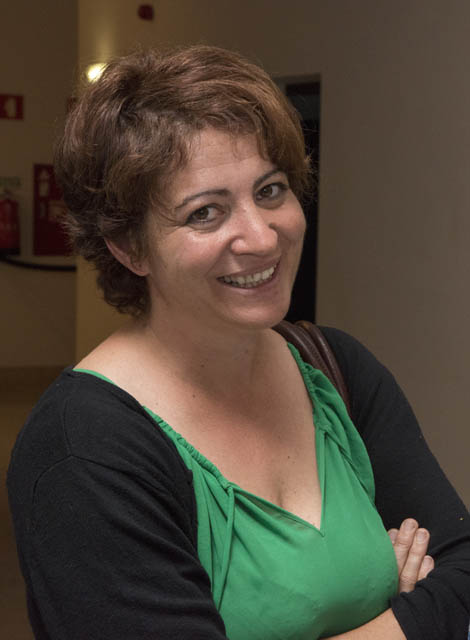 But Fátima Torres is not standing still and already has other plans, to explore areas complementary to organic farming, which will always continue to be the main business, and to ensure that at her Quinta das Seis Marias nothing is lost, everything is transformed… and generates income .
But Fátima Torres is not standing still and already has other plans, to explore areas complementary to organic farming, which will always continue to be the main business, and to ensure that at her Quinta das Seis Marias nothing is lost, everything is transformed… and generates income .
And that was how the young agricultural businesswoman applied to Proder for an agritourism project and the creation of a small transformation unit. The project, in the amount of 200 thousand euros, was approved and should start soon, as soon as all the licenses are ready.
The project, as he explained to the audience of Beta Talk in April, which took place, as always, in the Café-Concert space of the Municipal Theater of Portimão, involves taking advantage of the seven houses that already exist on the property to transform them into accommodation for tourists, but also for the creation, in these houses, of a "multifunctional room" that serves as an agro-industrial kitchen for the transformation of surplus from the farm, in order to be able to market them (strawberries, for example, to produce jams) and also as a place for provide training to guests and outsiders.
«The philosophy of agritourism is exactly that: people stay here, but participate in the activities of the farm. We can offer weekend packages that include, for example, workshops to learn how to make bread, jams, or other traditional things from the Algarve, such as pottery and basketry», explained Fátima Torres. "This is a segment of the tourist market that is very little explored in Portugal, but which is in great demand abroad," he added.
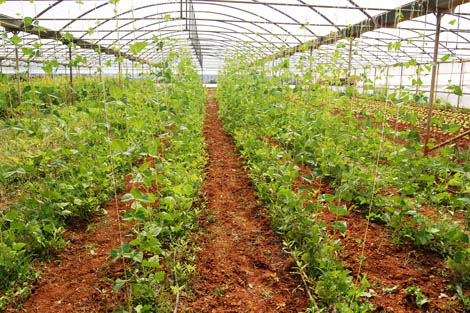 For now, even while there is no accommodation available, people are encouraged to visit Quinta das Seis Marias, in Sargaçal, Lagos. And Fátima also challenges anyone who wants to be a volunteer to go there: every four hours of volunteer work is rewarded with a basket of organic products. And what are the tasks? Pulling out herbs, for example. In an organic farm, where herbicides are prohibited for the sake of the quality of the products, “there are always lots of herbs!”, guarantees Fátima Torres.
For now, even while there is no accommodation available, people are encouraged to visit Quinta das Seis Marias, in Sargaçal, Lagos. And Fátima also challenges anyone who wants to be a volunteer to go there: every four hours of volunteer work is rewarded with a basket of organic products. And what are the tasks? Pulling out herbs, for example. In an organic farm, where herbicides are prohibited for the sake of the quality of the products, “there are always lots of herbs!”, guarantees Fátima Torres.
Quinta das Seis Marias is managed and operated by Fátima and her mother (who has since converted to organic farming", with the help of four more permanent employees. But Fátima, who is currently the head of the agrobio, its representative in the Algarve and former of the association, has already managed to convert two neighbors to organic farming.
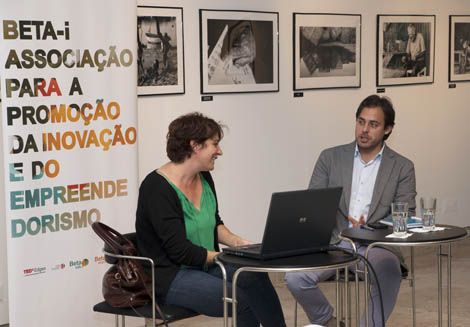 One of the “star” productions at Quinta das Seis Marias are its strawberries, produced without any chemicals and which, therefore, have a flavor “that has nothing to do with what you buy in most places” (something that the participants of the April Beta Talk were able to prove it, during the wine break).
One of the “star” productions at Quinta das Seis Marias are its strawberries, produced without any chemicals and which, therefore, have a flavor “that has nothing to do with what you buy in most places” (something that the participants of the April Beta Talk were able to prove it, during the wine break).
«The Algarve, even in terms of organic farming, has a huge competitive advantage, which is its climate, which is less humid and warmer. In the case of strawberries, we managed to produce them fifteen days before producers in the Lisbon area and a month before those in the North. And, thanks to our climate, we also have fewer diseases and pests».
Contacts:
Maria de Fatima Torres
Quinta das Seis Marias
Rua da Elementary School, Sargaçal
8600-325 Lakes


















Comments